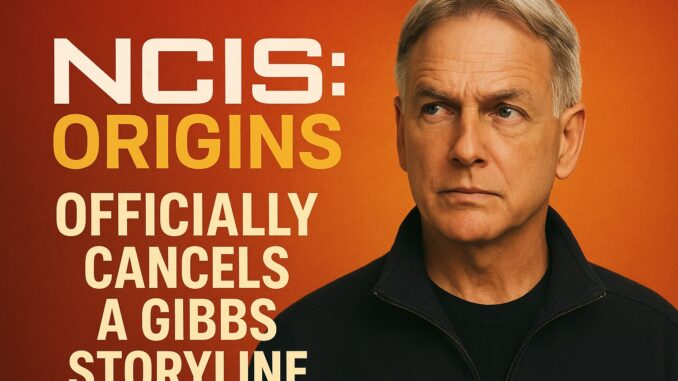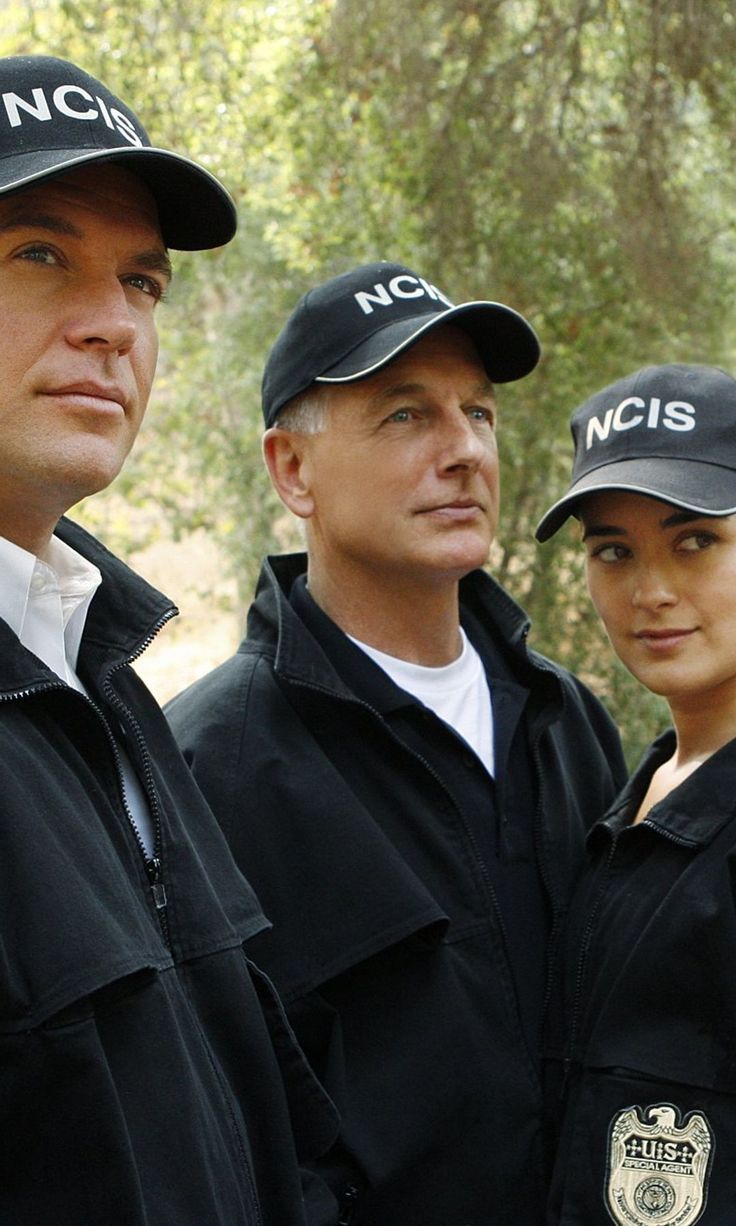
NCIS: Origins has set the stage for a compelling romance between Gibbs (Austin Stowell) and Lala (Mariel Molino), but the spinoff is foregoing it because of existing lore about the franchise’s central character. While NCIS: Origins is early in its run, the Gibbs-focused Navy prequel builds on some of the franchise’s most formative stories, delving into the backstory of its paramount character, Leroy Jethro Gibbs. Gibbs was the emotional core of the franchise until Mark Harmon exited NCIS in Season 19, and NCIS: Origins has revived his story’s development.
While its ratings dipped throughout its freshman run, the prequel has returned to prime-time TV with NCIS: Origins, dominating the streaming charts. There’s new momentum behind the show after the cliffhanger in NCIS: Origins Season 1, which left audiences wondering whether Lala Dominguez was still alive. NCIS: Origins Season 2’s premiere confirmed that Lala would live to see another season. However, Lala’s return has brought disappointing developments to her and Leroy’s romance, following a pre-determined trajectory that NCIS aficionados are well familiar with.
When Prequels Hit the Lore Brick Wall
Have you ever watched a show that seemed to spin off seamlessly—and then … something didn’t quite add up? That’s exactly what happened with NCIS: Origins when it tried to chart a major storyline for the iconic character Leroy Jethro Gibbs, only to pull it back. In this article we’ll dig into why that happened, what it says about continuity in big-franchise TV, and how fans should read these cancellations. Buckle up—it’s a lore-ride.
The Promise of Origins
A Prequel with Big Expectations
When NCIS: Origins premiered, it carried the weight of the legend that is Gibbs. The show positions a younger version of him, exploring his early years as a special agent. Facts: the show is set around 1991 and explores Gibbs’ foundational trauma and professional launch.
The novelty: fans would finally see what they only heard about in the original series.
The Canon Challenge
But there’s a catch: Gibbs isn’t just any character. He’s a 20-year franchise cornerstone. That means every new story has to respect what came before. The creators of Origins admitted as much: they said they’re “very aware of canon, and we’re constantly checking it and making sure that we’re staying true to it.”
And yet—canon is messy. Retcons, timeline gaps, conflicting flashbacks—so weaving a story becomes like threading a needle in a hurricane.
The Storyline That Got the Axe
What the Cancelled Plot Was (or Almost Was)
Here’s what we know: Origins originally built toward a deeper arc for Gibbs with a character named Lala Dominguez (Mariel Molino). In the Season 1 finale, Gibbs and Lala share a near-kiss in a pool, hinting at something intimate—but then the moment is cut short.
The strong implication: a romantic storyline or significant relationship between Gibbs and Lala—which would drastically pre-shape his later character in the main series.
Why It Was Cancelled
So what happened? Two big reasons:
Reason #1: Lore Contradictions
The show dropped in multiple moments that clashed with established facts from the original NCIS series. For example: In Episode 3 of Origins, Gibbs’ father Jackson meets Mike Franks earlier than the original did. That directly conflicts with the established NCIS Season 8 scene “Spider and the Fly,” where Gibbs introduces his father to Franks.
And the showrunners admitted:
“…if you want to stick to the actual exact words … we try to stay true to the canon as much as possible. Certainly when we don’t, people get frustrated.”
Reason #2: Protecting Gibbs’ Legacy
The mantle of Gibbs is high-order. The original series spent years building him as a man defined by loss, discipline, rules, and hierarchy. Introducing a major intimate arc in his early career—especially one that’s absent in the original series—could undermine or re-frame key aspects of his established persona. Origins appears to have dialed back that arc to preserve the mythic Gibbs.
What This Means for Fans
Continuity Matters More Than You Think
TV fans know that continuity—that seamless thread connecting events, characters, timelines—makes or breaks a franchise. When a prequel messes with canon too much, viewers cry foul.
The Origins team is walking a tightrope: deliver fresh stories and respect what came before. When they decide to cancel a storyline, it sends a message: “Franchise lore wins.”
Cancelled Isn’t Deleted—Only Suspended
It’s important to note: “cancelled” here doesn’t necessarily mean “never going to be referenced.” It may simply mean the writers are shelving or re-shaping the arc. The Lala-Gibbs moment, for example, remains ambiguous—Lala’s fate is still unknown at the end of S1.
So fans should keep one eye on the script—just because something was pulled doesn’t mean it’s gone forever.
The Anatomy of a Franchise Retcon
What is a Retcon?
Short for “retroactive continuity,” a retcon modifies previously established facts. In long-running shows like NCIS, retcons become unavoidable—as writing teams shift, story arcs evolve, and gaps accumulate.
Origins’ Retcon Toolbox
In NCIS: Origins, the team used several strategies:
-
Acknowledgement of risk: The showrunners openly said that canon doesn’t always stay consistent.
-
Selective adherence: They choose certain “non-negotiables” in the back-story and adjust other elements.
-
Ambiguity as cover: By leaving certain events vague (e.g., how or when Gibbs met certain characters), they preserve flexibility.
Why the Cancelled Storyline Matters
It Reflects the Stakes of Prequel Storytelling
Modern television loves prequels—but they carry inherent risk. When you start before the known timeline, you must navigate around a minefield of audience expectations, established facts, and character trajectories. The shelving of the Gibbs-Lala story shows how high those stakes are.
It Impacts Character Perception
If Gibbs had a major early-career relationship that wasn’t on the original NCIS series, that changes how we view every Gibbs moment going forward. For hardcore fans, that shift matters.
By cancelling or re-writing the arc, the creators are safeguarding the character’s core identity.
It Speaks to Fan-Driven Accountability
Fans don’t just watch—they remember. They catalogue every minute of franchise lore. A mis-step in continuity gets amplified quickly (see Reddit commentary).
When showrunners acknowledge “we messed with something,” it shows respect for that community.
The Key Moments Behind the Decision
The Pool Scene: A Near Miss
The Season 1 finale of Origins ends with Gibbs and Lala sharing a pool moment—so close to a kiss—but Gibbs interrupts. This teases a relationship without delivering it.
That moment is symbolic: the storyline could go one way, but doesn’t—probably because it would ripple through the entire NCIS universe.
Jackson Gibbs Meets Franks Too Early
Episode 3 of Origins shows Jackson (Gibbs’ father) and Mike Franks meeting earlier than established in the original series. That kind of timeline mismatch is exactly the kind of lore-contradiction that leads to cancellation of story elements.
How the Franchise Keeps Control of Lore
Establishment of Moral Boundaries
In interviews, showrunners say they treat certain facts as sacred and others as adjustable. The core facts of Gibbs’ wife and daughter’s deaths, his joining NIS, and Mike Franks mentoring him are firmly drilled in. Origins uses those as anchors.
Use of Ambiguity to Smooth Over Gaps
For example: Lala’s fate is left open-ended. Does she survive the car crash? Will she re-appear? By not definitively answering yet, the show gives itself flexibility for future seasons.
That ambiguity keeps the door open while the writers recalibrate.
Fan Expectations as a Creative Constraint
Let’s be honest: the fandom of NCIS is deep. They scrutinize every line of dialogue for continuity. When they spot a mismatch, the complaint thread lights up. The showrunners know this. The cancellation of the storyline is partly about controlling the narrative before the fans control it.
(And yes—there are Reddit threads about it.)
What’s Next for NCIS: Origins and Gibbs?
Season 2 Teasers & Lore-Safe Moves
Origins has been renewed for Season 2.
Co-showrunners hint that they’ll tackle other parts of Gibbs’ history (e.g., his second marriage to Diane) and the formation of the “Fed 5” team—but they’ll do so while keeping one eye on canon.
What the Cancelled Storyline Tells Us About S2
That storyline’s cancellation signals that S2 will likely steer conservative: fewer risky deviations, more alignment with established facts. Expect the show to fill in “in the gaps” rather than overhaul big parts of Gibbs’ history.
Fan-Viewing Tips: Watch With Both Eyes Open
If you’re watching with a fan’s lens, keep an eye out for:
-
Which moments echo original NCIS episodes.
-
Which references could be retcons (i.e., things that don’t align).
-
How much the show uses ambiguity to square potential mismatches.
Why This Matters for TV Franchises Generally
Prequels Must Balance Innovation and Respect
Many prequels fail because they either:
-
Shack oot too far into new territory, ignoring the original’s foundation.
-
Or they play it so safe that they become stale. Origins navigating this shows how complex this balancing act is.

Franchise Lore = Intellectual Property Value
The lore of Gibbs, the world of NCIS—they’re assets. When storylines clash with that lore, the value (in both continuity and fan faith) drops. Canceling a storyline is one way to protect that value.
Audience Sophistication is Real
Modern viewers aren’t passive. They track timelines, parse inconsistencies, raise alarms. That means showrunners must plan with care—or risk alienating the core audience.
Final Thoughts: A Cancelled Arc, But Maybe for the Better
Here’s the takeaway: The cancellation of that Gibbs storyline in NCIS: Origins isn’t a failure—it’s a sign of care. The writers respected the legacy of Gibbs enough to pull back rather than push forward blindly.
Prequels aren’t just stories set “before the beginning” — they are extensions of something already loved. And that means playing by the rules, even if the rules sometimes feel limiting.
So if you’re a fan of Gibbs, of NCIS lore, or just smart TV storytelling—this move is worth watching. Because sometimes the power is in what wasn’t shown as much as what was.